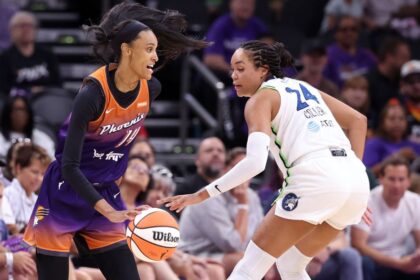Caitlin Clark has become the WNBA’s most valuable commercial asset, surpassing even the value of any star player. Her arrival in the spring of 2024 boosted television viewership, game attendance, media rights, sponsorships, and franchise valuations. The league experienced an unprecedented boom, even attracting billionaires interested in acquiring teams for millions of dollars. Clark not only offers outstanding plays, but has also revitalized hope in the league. The primary goal of the WNBA should be to convert Clark’s followers, who supported her from her college days at Iowa, into fans of the entire league, and not just of a particular player or team. The key lies in capitalizing on this opportunity, offering an attractive product and establishing a lasting connection with the new followers. The WNBA encountered a unique opportunity, comparable to the impact of Tiger Woods on the PGA Tour. However, instead of capitalizing on this situation, the league seems to be undermining its own success.
An example of this self-satisfaction manifested in a conversation between WNBA commissioner Cathy Engelbert and Minnesota star Napheesa Collier. The central theme was rookie contracts, which, valued at approximately $75,000 a year, underestimate the value of Clark and other talented young players like Angel Reese and Paige Bueckers, who also attract a significant fan base and media attention.
“I asked [Engelbert] how she planned to address the fact that players like Caitlin, Angel, and Paige, who are clearly generating massive revenue for the league, earn so little in their first four years,” Collier said at a press conference. “Her response was: ‘Caitlin should be grateful to earn $16 million off the court because without the platform the WNBA gives her, she wouldn’t earn anything.'”
Napheesa CollierCollier also stated that Engelbert told her that “the players should be on their knees thanking the lucky stars for the media rights deal they got.” Collier related this conversation to his criticisms of the quality of refereeing, league fines for silencing criticism, and other issues, valid points, especially in negotiations for a new labor agreement. However, Engelbert’s comments about Clark seem to have been an intentional provocation. Clark’s followers were already wary of the reception she has received in the WNBA, and with good reason. Hard fouls, sarcastic comments, and disparaging media criticism have created a tense atmosphere. While some of these situations are part of the game, others could be motivated by political issues, pride, jealousy, or rivalries. At times, Clark’s presence seems to generate an atmosphere of controversy. Although Clark has never complained, many of her followers perceive, and perception quickly becomes reality, that Clark is not fully welcome in the league. As a result, her followers do not feel welcome either.The WNBA commissioner’s statement that Clark should be grateful because she wouldn’t earn “anything” without the league confirms this suspicion. Furthermore, it reinforces the old stereotype that female athletes should be grateful for the opportunity to play. Are we in 1972?
This is all absurd. Clark was already running national advertising campaigns while in college. In her third year, she was more popular than any WNBA player. She came to the league with a great reputation. It is the league that should thank Clark for the commercial boom he has generated. It should feel fortunate to have her and other charismatic young stars. Engelbert responded with a statement that does not deny what Collier said nor addresses the main problem.The worst thing that could happen to the women’s basketball business is that new fans think the league not only doesn’t appreciate their favorite player, but is also openly hostile and condescending towards them. This way, the growth of a sport is not achieved. They may tune in to Caitlin’s (or Angel and Paige’s) games, but now they will have reasons not to support, watch, or care about anyone else.
The WNBA, instead of being a company that values them as lifelong customers, becomes the enemy.









